Understanding the circadian cycles of immune cells and the genes that control them may play an important role in combating and treating inflammatory and chronic diseases.
In the same way that when we suffer from jetlag we don’t function properly, when circadian cycles are disrupted in immune cells or organs such as the liver, they begin to function less effectively. This contributes to the development of metabolic and autoimmune diseases such as diabetes, cardiovascular disease and rheumatoid arthritis.
Research on these circadian cycles is the focus of Dr Kevin Man from the Walter and Eliza Hall Institute (WEHI) who has been awarded the NHMRC/RG Menzies Fellowship for 2016. The fellowship supports Dr Man while he completes a four year project split between WEHI in Melbourne and the University of California in San Francisco.
Dr Man, who has a PhD in Molecular Immunology from the University of Melbourne, is already in the US working within the University of California’s Cardiovascular Research Institute. He relishes the opportunity the fellowship provides to pursue his own research interests, focusing on more ‘risky’ exploratory science, based on ideas that might not have an immediately obvious application. The new research builds on the skills he developed throughout his PhD and projects.
“The area of my research is immunometabolism – study that focuses on the relationship between immune and metabolic responses. Relatively it’s not a big field, but in the US – particularly at UCal – there are several labs conducting innovative research which isn’t being done anywhere else in the world”, he said.
Understanding the relationships of cell regulation between immune cells and metabolic pathways, especially those that impact the circadian rhythms of immune cells, could enable the creation of tailorable therapies for immune-related disorders such as cancer or metabolic illnesses such as diabetes.
“Understanding the circadian cycle of immune cells, and how they can be manipulated, will help shed light on how and when treatments might be most effective. For example, if we know immune cells are more responsive at a certain time of the day, we can time vaccine delivery to match that and potentially increase the effectiveness of vaccines”, said Dr Man.
Dr Man will continue collaborating with WEHI while he studies in California and when he returns he hopes to bring both new ideas and research techniques which can be applied to inflammation research being conducted by Seth Masters and his team.
“My long term goal is to be running my own lab. Melbourne is one of the biggest biomedical precincts in the world and from my past collaborations and through the opportunities I’m finding now it seems like there is a lot of opportunity for my field of research”, he said.

